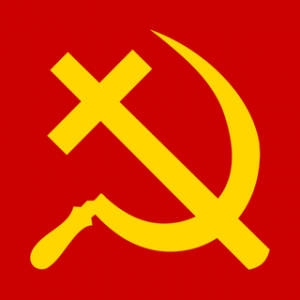Bulgarian Socialist Leader Expelled
September 25, 2024 by Cup&Cross
Filed under Featured, News, Publication
With over 100 votes at today’s meeting of the National Council of the BSP, they expelled the resigned leader of the party, Kornelia Ninova. She was at the head of the formation for eight years. The decision was supported by 105 votes “for”, 16 “against” and four abstained.
Along with Ninova, Georgi Svilenski, Ivan Chenchev and Krum Donchev were excluded from the left formation. There are seven reasons for the release of Ninova and her three party members. Among the main reasons for their exclusion is non-compliance with the decision from which constituency Ninova and Svilenski should run for parliament.
„ Legally, we are in absolute precedent – a chairman who is expelled from the party but is chairman by court order. Give us time to think about the situation. Our efforts must be aimed at the BSP’s appearance in the elections,” said the resigned leader Ninova. She added that they refused to vote by roll call at the plenum.
Gheorgi Svilenski said that the agenda of the National Council of the party consisted of two points – about the current situation and about the domestic political order. “For the second point, the reasons for imposing punishments on the four should have been read – to Cornelia Ninova, to me, to Ivan Chenchev and to Krum Donchev. There were no reasons for this decision and Zafirov’s answer to Donchev was: “In principle”. Donchev is excluded “in principle”. This decision was made between 65 and 70 people, and people who are not members of the National Council were also present in the hall, Svilenski said, adding that he had asked the presenter Christian Vigenin three times to check the quorum, but he had refused.
In his words, the procedure for Ninova’s exclusion is not the same as the steps for the release of other party members. “She was elected chairman of the party by 57,000 socialists”, he added.
Ninova explained that on the one hand she wants to leave the leadership post, on the other hand her fellow party members want her resignation. “This can only be done in Congress, they refused to call Congress, they refused to let me in. They will keep me here as a hostage to legitimize their iniquities. I have given a power of attorney to Georgi Svilenski and Ivan Chenchev, they will participate in the registration of the lists, she added.
Bulgaria Elects a Socialist President Again
 As we have previously proposed, this puts Bulgaria back on the “Red Light of 25 Years of Communism…” as in 2013 and 2014.
As we have previously proposed, this puts Bulgaria back on the “Red Light of 25 Years of Communism…” as in 2013 and 2014.
A socialist general from the Bulgarian Air Forces took by surprise the recent presidential elections winning +60% of the vote. He has already declared his pro-Russian preference asserting Bulgaria may pull out from NATO and the European Union.
As soon as loosing the elections, the ruling political party resigned the government early Monday morning. Bulgaria’s constitution now demands that the president gives mandate to the opposing Socialist Party, who will reject it due to insufficient presence in Bulgaria’s Parliament. The president then returns a second mandate to the ruling party, which they claim will turn down promptly.
A temporary government is then to be formed by the President and current Parliament, as it was the case in 2013 and 2014. In term, the democrats will hope to win with majority the new parliamentarian elections in 2017, which will be the 11th consecutive government elections in Bulgaria for the past 11 years since 2005:
2005 Parliamentary Elections
2006 Presidential Elections
2007 Municipal Elections
2009 Parliamentary Elections
2009 European Parliament elections
2011 Presidential Elections
2011 Local Elections
2013 Early parliamentary elections
2014 Early Parliamentary Elections
2015 Municipal Elections
2016 Presidential Elections
What does all this mean for the Church in Bulgaria?
Unstable political situation in Bulgaria with pro-Russian policies proposes a problem for the ministry of virtually all Protestants in the country. With a great probability to be voted in through a pro-Socialist government, a newly proposed legal measure bans any and all foreign organizations, companies and citizens from providing funding or donating to Bulgarian religious denominations. This would ban not only foreign physical and legal entities from funding Bulgarian religious institutions, but also companies with foreign ownership that are legally registered in Bulgaria. Using state funding for “illegal activities” by religious denominations will be sanctioned with prison terms of 3-6 years.
With these sanctions in mind, the new legal measure embodies the following rationale:
- Churches and ministers must declare all foreign currency money flow and foreign bank accounts
- Participation of foreign persons in the administration of any denomination is strictly forbidden
- Foreign parsons shall not be allowed to speak at religious meetings in any way shape or form especially religious sermons
- Anonymous donations and donorship to religious organization is not permitted
- Bulgarian flag shall be present in every temple of worship
- The new measure will block all foreign interference in the faith confessions and denominations in Bulgaria
New socialist president-elect throws Bulgaria in a new political crisis
 As we have previously proposed, this puts Bulgaria back on the “Red Light of 25 Years of Communism…” as in 2013 and 2014.
As we have previously proposed, this puts Bulgaria back on the “Red Light of 25 Years of Communism…” as in 2013 and 2014.
A socialist general from the Bulgarian Air Forces took by surprise the recent presidential elections winning +60% of the vote. He has already declared his pro-Russian preference asserting Bulgaria may pull out from NATO and the European Union.
As soon as loosing the elections, the ruling political party resigned the government early Monday morning. Bulgaria’s constitution now demands that the president gives mandate to the opposing Socialist Party, who will reject it due to insufficient presence in Bulgaria’s Parliament. The president then returns a second mandate to the ruling party, which they claim will turn down promptly.
A temporary government is then to be formed by the President and current Parliament, as it was the case in 2013 and 2014. In term, the democrats will hope to win with majority the new parliamentarian elections in 2017, which will be the 11th consecutive government elections in Bulgaria for the past 11 years since 2005:
2005 Parliamentary Elections
2006 Presidential Elections
2007 Municipal Elections
2009 Parliamentary Elections
2009 European Parliament elections
2011 Presidential Elections
2011 Local Elections
2013 Early parliamentary elections
2014 Early Parliamentary Elections
2015 Municipal Elections
2016 Presidential Elections
What does all this mean for the Church in Bulgaria?
Unstable political situation in Bulgaria with pro-Russian policies proposes a problem for the ministry of virtually all Protestants in the country. With a great probability to be voted in through a pro-Socialist government, a newly proposed legal measure bans any and all foreign organizations, companies and citizens from providing funding or donating to Bulgarian religious denominations. This would ban not only foreign physical and legal entities from funding Bulgarian religious institutions, but also companies with foreign ownership that are legally registered in Bulgaria. Using state funding for “illegal activities” by religious denominations will be sanctioned with prison terms of 3-6 years.
With these sanctions in mind, the new legal measure embodies the following rationale:
- Churches and ministers must declare all foreign currency money flow and foreign bank accounts
- Participation of foreign persons in the administration of any denomination is strictly forbidden
- Foreign parsons shall not be allowed to speak at religious meetings in any way shape or form especially religious sermons
- Anonymous donations and donorship to religious organization is not permitted
- Bulgarian flag shall be present in every temple of worship
- The new measure will block all foreign interference in the faith confessions and denominations in Bulgaria
New Socialist Attack on Religious Freedom in Bulgaria
 Over 26 years after the fall of the communist regime, the socialists left are reintroducing a new war against Christianity and religious freedom in Bulgaria. Two weeks after the introduction of draconian bill by George Kadiev, imposing full state control over believers and churches, the socialist parliamentary group filed in the registry of the National Assembly on March 14th a broader bill to restrict religious liberty in Bulgaria via government regulations according to which unregistered religions (faith confessions) have no right to:
Over 26 years after the fall of the communist regime, the socialists left are reintroducing a new war against Christianity and religious freedom in Bulgaria. Two weeks after the introduction of draconian bill by George Kadiev, imposing full state control over believers and churches, the socialist parliamentary group filed in the registry of the National Assembly on March 14th a broader bill to restrict religious liberty in Bulgaria via government regulations according to which unregistered religions (faith confessions) have no right to:
- Hold religious meetings;
- Create and maintain charitable or humanitarian institutions;
- Write, issue and disseminate religious publications;
- Have educational establishments;
- Collect and receive unsanctioned donations;
- Associate or confide with people and communities at home or abroad on subjects of religion and religious issues.
In practice, the new bill introduces a new form of compulsory registration of believers by the state. The left socialist legislators seek to repeal fundamental human rights enshrined in Bulgaria’s Constitution and the European Convention for the Protection of Human Rights and Fundamental Freedoms (ECHR), as follows:
- The right to freedom of thought (Art. 9 ECHR and Art. 37 CRB)
- The right of forming beliefs and the non-obligation to give information about one’s convictions (Art. 38 CRB, Art. 9 ECHR)
- The right to freedom of conscience and religion (Art. 9 ECHR Art. 37 CRB)
- Freedom of speech, press and media (Art. 40 CRB)
- Right of expression (art. 10 ECHR, Art. 39 CRB)
- Freedom to collect and disseminate information (Art. 41 of the CRB; Art. 10 ECHR)
- Freedom of assembly indoors without permission from the authorities (Art. 43 of the CRB, Art. 11 ECHR)
- The right to freedom and confidentiality of correspondence (Art. 34 CRB; cf. Art. 8 ECHR)
- Revocation of the right to freedom of association (art. 11 ECHR Art. 44 CRB).
In the unfortunate event that this bill passes under the law, it will impose, the already prohibited by the Constitution, obligatory state ideology. It will also violate separation between church and state, according to which the state cannot interfere in the internal life of churches and religious communities. Furthermore, in attempt to limit the freedom of the people, it will impose expressed governance and control of faith, beliefs and personal conviction; thus, endangering fundamental human rights and freedoms inherent to democracy.







